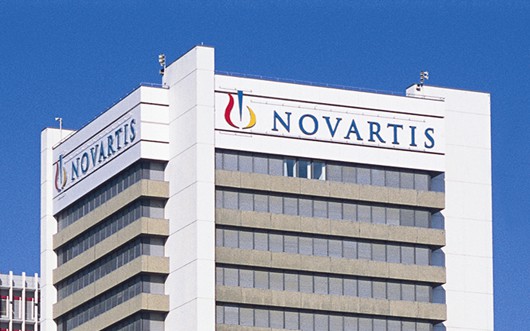
Novartis’ MET inhibitor capmatinib could be approved for marketing in the US within six months for a rare form of non-small cell lung cancer (NSCLC), as the FDA starts a priority review of the drug.
Capmatinib – originally developed by Incyte and licensed to Novartis in 2009 – has been submitted for approval in the US for metastatic MET exon14 skipping-mutated NSCLC, a form of lung cancer with a notoriously poor prognosis.
The start of the review puts Novartis in a position to bring a drug for MET-mutated NSCLC to market ahead of Merck KGaA, which is developing a rival MET inhibitor called tepotinib for this type of cancer.
MET mutations are seen in around 3% to 5% of all NSCLC cases, and capmatinib and tepotinib could open up a new avenue of targeted therapy for this type of cancer alongside other drugs targeting mutations like EGFR, ALK and Ros.
Capmatinib will only be effective if patients are screened for the mutation of course, and to that end the Swiss pharma group has signed a collaboration with Foundation Medicine to develop diagnostics that can detect METex14 mutations from tissue and blood samples. These are under regulatory review at the FDA.
Novartis’ filing with the FDA is based on phase 2 results from its GEOMETRY mono-1 trial, reported at last year’s ASCO conference.
The study showed an overall response rate of 68% with the drug among 28 treatment-naive patients and 41% among 69 previously-treated patients. The median duration of response was 11.1 and 9.7 months respectively.
There were also encouraging signs of activity in cancer that had spread to the brain, with seven of 13 patients showing a response and in some cases showing the complete resolution of these lesions.
Novartis’ chief medical officer John Tsai said that capmatinib “may be a major treatment advance for patients with this particularly aggressive form of lung cancer”.
Merck isn’t thought to be too far behind capmatinib with its tepotinib programme, and also reported results at last year’s ASCO that it said had the potential to support regulatory filings for the drug.
The VISION trial involved 57 treatment-naïve and pre-treated METex14-positive NSCLC patients with an overall response rate of 45% to 50% – depending on the diagnostic used at enrolment – and with a median response duration of 12 to 17 months.
It was also effective in brain metastases, according to Merck, which hasn’t yet filed for approval of its drug according to its latest pipeline update.




